Since IBM’s Red Hat has decided to part ways with the renowned CentOS Linux production server by Dec. 31, 2021, the news is not being taken wholeheartedly by a proportion of the Linux community. The stated end-of-support date is for CentOS Linux 8 distribution. The Linux community users’ protests with sworn oaths to the CentOS Linux distribution is understandable due to the stability, security, and freedom the Linux server provided to their production servers.
Red Hat wants to redirect its resourceful support from CentOS Linux to CentOS Stream. We can define CentOS Stream as an upstream development platform that caters to the Linux ecosystem developers. It harbors continuously streaming content that also provides Red Hat’s daily updates. Since it primarily caters to developers, it updates them on the progress and changes regarding RHEL-based distros.
An interesting trivia about RHEL before we jump into this article’s main objective is that it is not the sole founder of CentOS. For a long time, this Linux distro existed as a community project before RHEL came into the picture. RHEL gained CentOS dominance in 2014 when it acquired the trademark and ownership of the Linux distro. This takeover came after RHEL’s commitment to sponsoring CentOS development.
Alternative Linux Production Servers to CentOS
RHEL is cutting off its association with CentOS support. It does not imply that you should be left stranded in a non-supported server environment like a Linux community user. It is not the end of your productive server-hosting career or hobby. The impact and influence of CentOS as the ultimate production server in the Linux community was only overshadowing the potential and reputation of other impactful Linux production servers, as we shall soon realize.
So pack your bags with your updated production servers’ skillset and experience as we journey through the domains of alternate Linux production servers. If you do not have any skillset to showcase, only bring your positive mindset. The server documentation, Linux communities, and forums associated with these production servers will take you through your first baby steps.
Just because RHEL is cutting off its links with CentOS does not imply that the list of Production servers we are about to review should completely disregard its contribution. RHEL is also presenting us with some interesting candidates for the alternate Linux production server positions for CentOS.
RHEL-Based Linux Production Servers Alternatives
Some Linux production server candidates in this list are still under development, and we shall rightfully indicate in their titles. The other production server candidates supported by RHEL are stable and mature in their server performance.
Rocky Linux
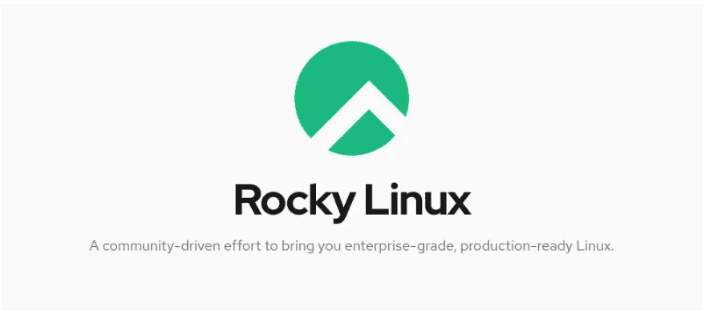
Rocky Linux as an Alternative to CentOS
As soon as the original developers behind CentOS made it clear that they are planning to down their tools on CentOS 8 support by Dec. 31, 2021, they already had a new project initiative in mind. The backup plan that RHEL hopes will take over from CentOS 8 after its redirection to CentOS Stream.
This Rocky Linux project initiative under RHEL is still under development and is yet to mature as a stable and reputable Linux production server. The naming convention of this Linux distro is proof that it is the new heir to the CentOS throne. Its name is a tribute and an honorable mention to one of the CentOS project’s original co-creator Rocky McGaugh. Since Rocky Linux is RHEL 8 fork, the completion of its stable development phase aims to grant it the same bug-for-bug compatibility status as evident in the Red Hat Enterprise Linux distro.
Since Rocky Linux is taking the Rapid Development approach, it is advisable not to implement it in your production environment until its viable stabled version is released to the Linux community. With fingers crossed, we hope by the end of 2021; its stable release will be ready to roll out and takes its rightful place among the Linux production server software.
Project Lenix
Project Lenix is another RHEL fork that is still maturing in its software development phase, awaiting its stable release. Its announcement also took place the day CentOS Stream took the limelight from CentOS. CloudLinux is responsible for the creation and development of Project Linux. CloudLinux serves as an Enterprise Oriented Service. In recent years, its main service provision manual has been customizing the CentOS server for the Linux community users. Since we now recognize CloudLinux as a reputable and trustworthy dealer with experience handling enterprise servers and the retiring CentOS, they automatically have our vote of confidence on what we expect them to deliver regarding Project Linux. We can’t wait to explore this promising RHEL fork.
Oracle Linux

Oracle Linux as an Alternative to CentOS
This RHEL-based, RHEL forked, Linux distro is the first candidate on this categorized list of CentOS replacements that we can term as stable and mature enough to surf through the Linux servers’ production environment. Oracle Linux’s readiness for the server production environments is not the only exciting attribute. It also gives the Linux users a bridge to migrate from the CentOS environment into its domain. The server migration process guarantees that you do not have to participate in unnecessary server re-installations. The workaround on this CentOS-to-Oracle-Linux migration is explained on Oracle’s Github repo.
Oracle Linux has been a production-ready Linux server since 2006. Its software application binary is 100% compatible with RHEL. Because it follows up closely on the development calendar of RHEL, each RHEL version release has an equivalent Oracle Linux version release. Oracle also waivers the need for any Linux user to sign an agreement before exploring the Ins and Outs of Oracle Linux.
Under Oracle Linux, you also have two Linux Kernels choices to explore: RHCK (Red Hat Compatible Kernel), which is also applicable to other Red Hat Linux distros UEK (Unbreakable Enterprise Kernel), which solely serves Oracle Linux.
Before the retirement of CentOS was announced, Oracle Linux’s reputation could not proceed with CentOS because of its biased track record with open-source projects. Now might be the time to fix that loophole and maybe raise its status in the Linux community.
ClearOS

ClearOS as an Alternative to CentOS
Hewlett Packard computers are responsible for creating and developing this Linux server software. HP’s HPE ProLiant Servers run on this Linux server software with strong developmental roots and foundation on CentOS and RHEL. The ClearOS project’s partnership accommodates both HPE and Clear Center as the main participants. Since it is an open-source project, its community users can freely and easily access it for download and usage.
If you explore the ClearOS official website and navigate to their PRODUCTS menu, you will find out that they have more to offer on top of its open-source platform. You can access their app marketplace and interact with both paid and free applications to boost your OS server user experience.
ClearOS is another candidate in the Linux production servers lists hoping to occupy the void being left by CentOS’s exit. We cannot speculate if it will be the ultimate heir to the CentOS throne, but we know that ClearOS is bound to gain some new followers.
Springdale Linux
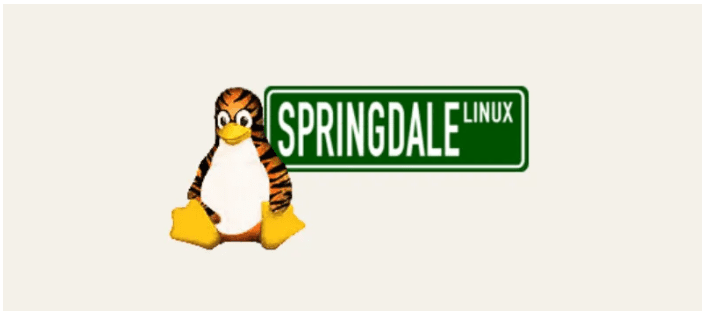
Springdale Linux as an Alternative to CentOS
New Jersey’s Princeton University brewed this academic project that became an innovation. This Linux server is an interesting candidate in the list of Linux production servers seeking to dethrone CentOS. It is a Red Hat fork under the maintenance of Princeton University’s academicians. This statement qualifies Springdale Linux (SDL) as a scientific Linux distro. Scientists, too, need significant space in the Linux community. You can relate to Princeton University as the former Princeton University Institute for Advanced Study.
Despite the absence of evidence to find a matching RHEL 8 equivalent for the Springdale Linux distro, the step down of CentOS is a hint that they might be speeding up the development of a reputable Linux production server.
Red Hat Enterprise Linux (RHEL)
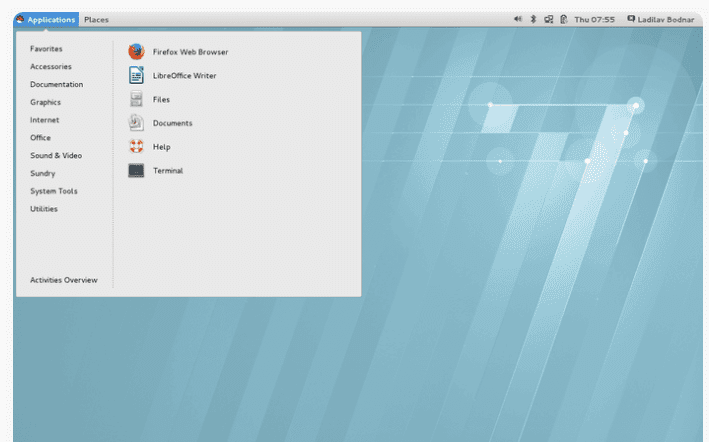
RHEL as an Alternative to CentOS
Red Hat developed RHEL for Linux users seeking a Linux distro that could be commercialized. It is an open-source community-driven project based on Fedora. Its developmental links to the Fedora Linux distro make Fedora the first testing point for most software targeting RHEL-based distros.
If your Linux production server’s primary functionality and objective is employing some software-oriented storage techniques to power modern data centers, then under the RHEL server domain, you are guaranteed a Linux production environment that is powerful, stable, and secure. RHEL is flexible in its support for IoT, Cloud, Big Data, containers, and visualization.
If you are working with IBM System Z, Power, and 64-bit ARM machines, RHEL is the go-to OS software. Choosing to go the commercial way and subscribing to Red Hat’s OS packages guarantees several benefits. You will reap unmetered technical support from its engineering team, unquestionable product security, reputable, trusted knowledge, and the latest release of their enterprise-ready software versions.
Fedora CoreOS

Fedora CoreOS as an Alternative to CentOS
The real world workaround on containers under an enterprise environment requires that their deployment be configurable from Linux instances. These Linux instances are defined under cloud-based platforms. Such platforms can be Google Cloud, Azure, and AWS. Most developers and web admins achieve this objective by configuring their general-purpose Linux server to adapt to these deployment needs. It is one way to attain a deployment objective but supposing you want your server OS software to be as performant as possible under such configurations, where do you go? This question is answerable through the Fedora CoreOS distribution.
Fedora CoreOS started when Red Hat adopted CoreOS and later took it apart and merged some of its features and components to OpenShift. Cloud providers and download sites were then stripped of their hosted CoreOS images. Fedora then intervened and forked CoreOS to create Fedora CoreOS. This Linux distro’s functional purpose is to provide scalable cloud-level container deployments. Its deployment strategy also meets your enterprise needs through its auto-updating feature. Its extended development period is enough to guarantee a stable server performance once you deploy it on your preferred cloud platform.
Other Linux Production Server Alternatives
The Linux production server candidates in this list are independent of RHEL, and we can vouch for their stability in a production-ready Linux environment.
YunoHost
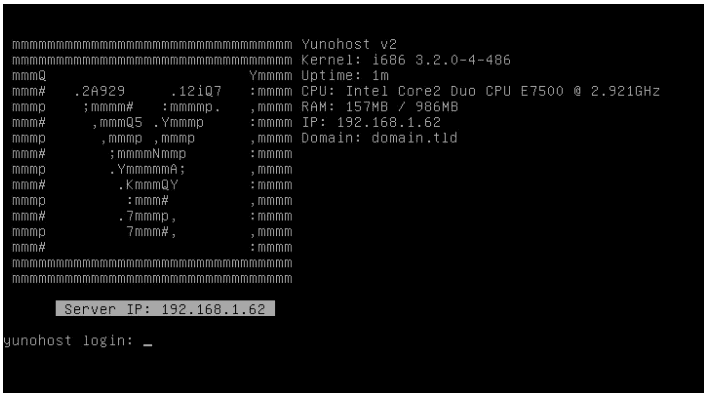
YunoHost as an Alternative to CentOS
This Linux server distro is Debian-based and guaranteed to contain some Debian DNA in its software infrastructure. The customization objective of YunoHost ensures that its users can comfortably host their web server preferences.
It is so scalable that it’s hard to find a single hardware device that will face any difficulties accommodating it. Whether you are dealing with virtual private servers, computers, old desktops, and even ARM boards like the famed Raspberry Pi, YunoHost will let you host web servers compatible with these hardware devices.
Webmin is the provided web-based admin interface of choice that perfectly complements YunoHost. Despite YunoHost being a server OS software, Webmin gives you graphical access and privilege to managing any server system you choose to set up. We can consider this feature a relief to a web admin seeking some flexibility away from the command-line or terminal utility.
Debian Linux

Debian Linux as an Alternative to CentOS
Debian Linux is not a new name in this contested list and a likely candidate to dethrone anyone trying to take the popularity and fame of CentOS. Its credentials in the Linux community make it a rock-solid server distribution. If you want a server system that portrays a stable performing environment, you have no choice but to go with Debian Linux.
Depending on the time and skillset investment under CentOS, migrating to Debian will immediately depict some notable differences in the new environment in terms of the terminal command usage and the availed package management system. If your Linux user credentials describe you as seasoned or open-minded, then you will have no trouble adapting to this awesome and stable Linux server distro.
OpenSUSE
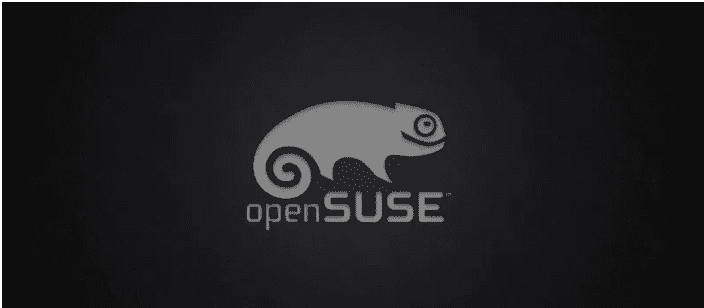
OpenSUSE as an Alternative to CentOS
if you manage to trace the Red Hat’s main office within your locality and enter singing praises about SUSE, then you might be kicked out by security for taking sides with their direct competitor. SUSE Linux Enterprise caters to the enterprise provision of their SUSE-related Linux products. If you do not want to make acquaintance with this enterprise version of SUSE products, you can go with the popularity of OpenSUSE, where most of its community users reside. It is functional both as a server and as a desktop Linux OS.
The choice of going with this Linux server distribution has zero regrets. An important system tool that helped SUSE make an innovative leap is the famed YAST. Only the Linux-literate users of the late 90s and early 2000s can relate to this significant milestone. YAST gave SUSE the deserved round of applause for easing user navigation and management of its system environment.
The OpenSUSE Linux distro offers two Linux flavors to its users: Tumbleweed and Leap. Tumbleweed is the rolling release, and Leap the stable release. Regarding the alternative Linux production servers agenda of this article, your Linux flavor choice under openSUSE should align with Leap’s stability.
Ubuntu

Ubuntu as an Alternative to CentOS
Ubuntu Linux server is another mature candidate in this CentOS inheritance list because of its development maturity and stability. Its popularity ranks above any other Linux distribution on a worldwide scale. On that note, we could not have a proposed CentOS server-inheritance list of candidates without giving an honorable mention to the famed and popularized Ubuntu. It is perfect as a server and as a desktop OS software.
I can personally attest to the use of Ubuntu as a web server for my personal projects, and it goes without saying that the results have been remarkable, and not at one point have I felt disadvantaged. For a user who is used to the RHEL-based domain, some notable differences you will experience under Ubuntu relate to its package management through the APT software and changes in the system management and networking components. The five-year support offer under an Ubuntu LTS version is an offer you can’t refuse because CentOS only gave half of this deal. Ubuntu also offers its users the choice of upgrading to its newer distro version or the alternative of going with a paid extended support plan.
Mageia

Mageia as an Alternative to CentOS
This Linux distro is a new name to most of us, but that does not dismiss it as an ideal candidate to compete for the throne of CentOS. Mageia Linux distro is a Mandriva-based fork. Its development is fueled by its community developers, making it a free, secure, and stable Linux OS. The Mageia software repository supports free application software and system utilities like the integrated system configuration tools. Its landmark in the Linux community came to fruition when it became the first Linux distro to substitute Oracle’s MySQL with the MariaDB database.
Any quested form of support under this Linux distro is directed to the Mageia community. This community consists of users, advocates, and makers.
Arch Linux
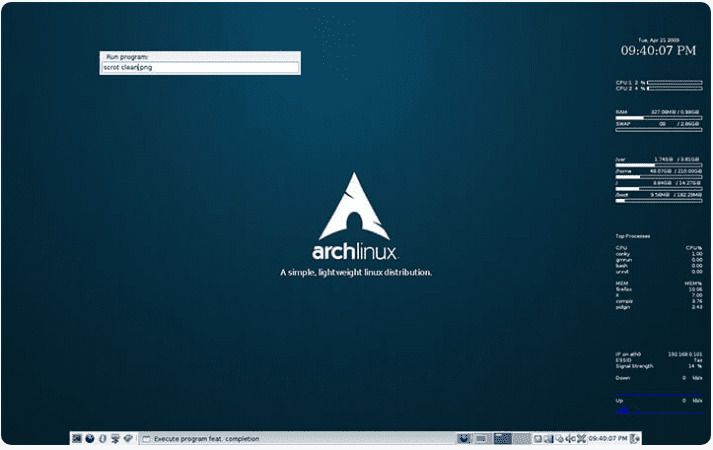
Arch Linux as an Alternative to CentOS
This Linux distro can be described as free, light-weight, simple, and open-source. Not to forget that Arch Linux is also very secure. Its rolling release pattern ensures that its OS versions released to its community attain the needed stability and user flexibility. It utilizes both the community-supported package and official package repositories.
Since it is general-purposed, you can choose to use it on a desktop or server environment as it optimizes both the X86-64 and i686 system architectures. We can no longer rely on the i686 system architecture support due to its dwindling popularity in its community users and the distro developers.
Arch Linux implements a bug tracking facility to improve its system performance and user experience. Its online community is also thriving with solutions and resources to bug fixes and system improvement hacks.
Slackware Linux
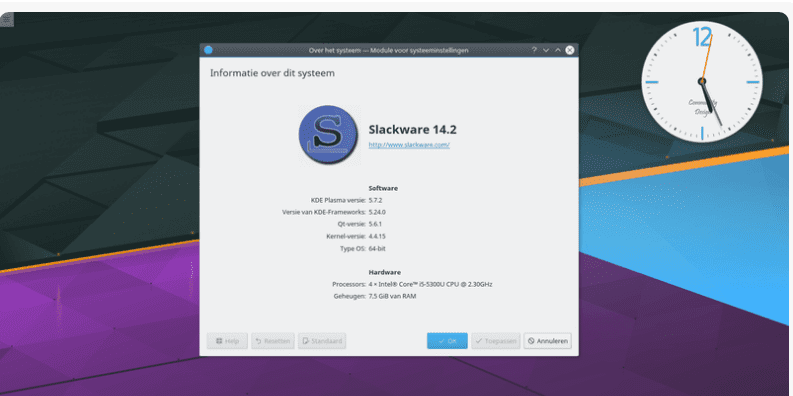
Slackware Linux as an Alternative to CentOS
The last yet not least performant candidate on the Linux server list of candidates after the fame of CentOS is Slackware Linux. This Linux distro’s functional stability and design simplicity strive to give it a Unix-like appeal. Slackware is a powerful free and open-source Linux distro. Patrick Volkerding takes all the development credit of this distro in 1993. Its technical proficiency makes it a performant distro for users who want to configure and control the Linux server production environments comfortably.
Its installation is non-graphical, and its software packages provision does not cater to auto-dependency resolution. If you want to be the server administrator of this OS environment, you will need to polish your technical expertise. The administrative configurations related to this Linux distro require shell scripts and plain text files. Its lack of a public code repository and a formalized bug tracking service makes it a platform adaptable to an experienced yet daring Linux user.
If you are interested in compiling or developing supplementary software through this server platform, then its range of current libraries, editors, and development tools are enough resources. It is compatible with the latest X86_64 and X64 machines and Pentium-based systems. If you need help while navigating Slackware, you should consider its thorough documentation among other online resources like Slackware forums.
Final Note
The above described and reviewed list will get you started on a reputable Linux server environment. The spoils are too much for the taking, and it is up to you to toss a coin and decide which Linux production server will be most compatible with your skillset and the webserver services you wish to render. Before choosing a Linux web server, consider its Linux community’s activeness. They are the go-to place when you get stuck in the mud trying to configure or install related features and services. The machine specs for installing and configuring these Linux production servers are also important as they determine how resourceful they will be with your launched projects.
The Stepdown of Centos as a production server is not a bad thing after all. You get to experience new and polished Linux production server infrastructures. You can choose to remain within the Red Hat domain as you make your production server pick, or you can choose to dive into the ocean and explore other Linux production server alternatives.


2 comments
Worth noting that CentOS Stream is not cancelled. That version of CentOS sits between RHEL and Fedora, and you can easily ‘convert’ CentOS to CentOS Stream. By far the easiest solution! EOL is currently set to mid 2024.
and AlmaLinux ?